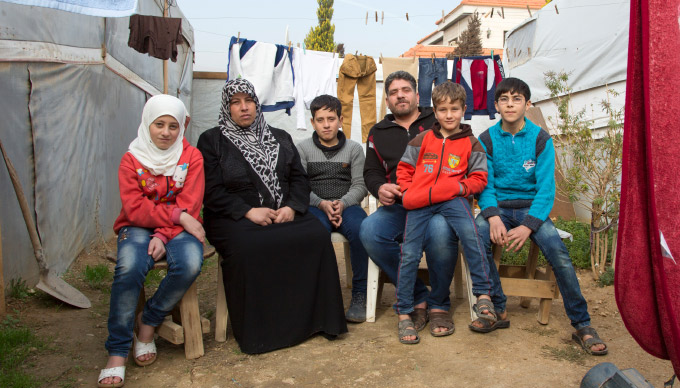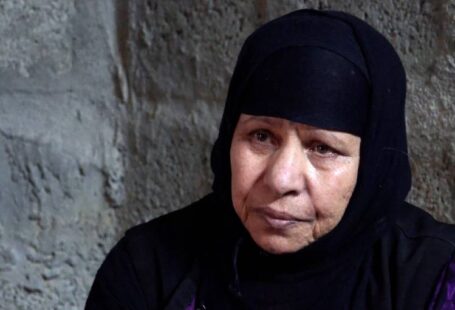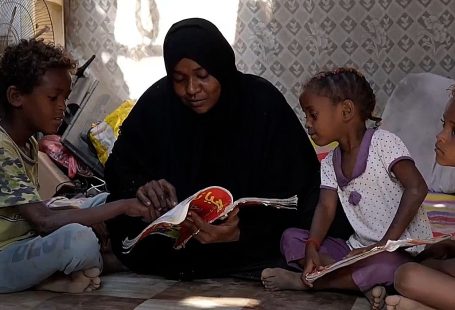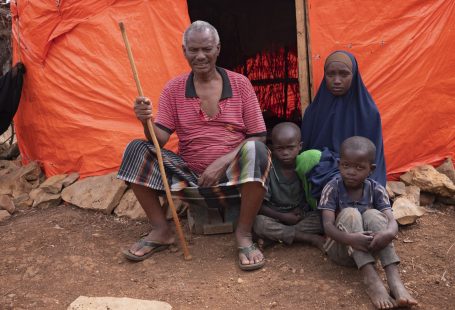The Quran [9:60] makes it clear that the “fuqaraa” (the poor) and “masakeen” (the needy) are eligible to receive Zakat. Therefore there is no difference of opinions between Islamic scholars on the legitimacy of these two categories to receive Zakat. However scholars have differed on the meaning of “fuqara” and “masakeen”. What these terms mean precisely? Which one of the two is the most in need? And what is the difference between both? We have received these questions from a lot of donors, and this is what we will clarify here.
The majority of Muslim scholars consider that the two terms “faqeer” (singular form of “fuqara”) and “miskeen” (singular form of “masakeen”) have different meanings. They rely on the verse to say that, if there was no difference between the two, then why would they be both mentioned in the verse? It would not make sense to say that Zakat has to go to the faqeer and the miskeen if the terms meant the same thing.
A minority of scholars consider that there is no difference between both terms. This is the opinion of some scholars from the Maliki, Shafi’i and Hanafi schools. Actually, some words in Arabic are synonymous, but when used together they differ in meaning. This is the case for faqeer (singular form of fuqara) and miskeen (singular form of masakeen). Imam Al Nawawi explains that they have the same meaning, but when they are together (as in the verse), they then take different meanings.
There is therefore agreement that the two terms have different meanings in the verse, so let me explain the difference. First, regarding which one is the most of need, there are two opinions among the majority of scholars who consider that the terms are different:
- The faqeer is more in need than the miskeen. This is the opinion of the Shafi’i and Hanbali schools. One of their arguments is the order between the two in the verse.
- The miskeen is more in need of the faqeer. This is the official opinion of the Maliki and Hanafi schools.
This difference comes from the definition given to both words.
When you go into details, there are numerous opinions on these definitions. Al Qurtubi mentions nine differences, but we will only mention here the most known according to each school:
- The faqeer is a person who owns nothing. The miskeen has some goods, but it is not enough to cover basic needs. This is the opinion of the Shafi’i school.
- The opposite. This is the opinion of the Hanafi School.
- The faqeer is a person who cannot cover half of his/her basic needs. The miskeen has enough goods to cover at least half of his/her needs, but cannot cover them entirely. This is the opinion of the Hanbali School.
- The miskeen is a person who has nothing and asks people for help. The faqeer cannot cover his needs, but does not ask for help. This is the opinion of the Maliki School.
Overall we can say that the definition evolves around one of the two (either the faqeer or the miskeen depending on the school) having nothing, and the other one having some goods, but not enough to cover their needs.
The important thing for organizations distributing Zakat is that this does not make a real difference in practice, in the sense that they are both legitimate to receive Zakat. Therefore if someone is identified as having nothing, or not enough, then he or she is eligible to receive Zakat. The fact that the person will be qualified as a faqeer or miskeen from a religious point of view does not make a difference regarding the eligibility to receive Zakat. What truly matters is to ensure that the person receiving Zakat is indeed in need.
UNHCR has put specific processes and frameworks to evaluate the needs of families and identify needy families among refugees and internally displaced persons (IDPs), in every country of operation. One example is the Vulnerability Assessment Framework (VAF) developed for refugees in Jordan. The VAF is an inter-agency initiative (agreed among all humanitarian agencies operation in Jordan) to put in place a system that supports the humanitarian community to establish a profile of vulnerability among Syrian households. It consists of giving a vulnerability score according to certain criteria. UNHCR’s cash assistance programme in Jordan heavily relies on VAF to ensure that people receiving cash are indeed the ones most in need, or in other words the most vulnerable. Similar practices to VAF are followed by UNHCR in other countries to assess vulnerability and design interventions accordingly, especially through cash assistance.
For the distribution of Zakat funds received by the Refugee Zakat Fund, UNHCR relies on its existing vulnerability frameworks and processes, ensuring that 100% of Zakat donations reaches the fuqara and masakeen of refugees and IDPs.











Social Profiles